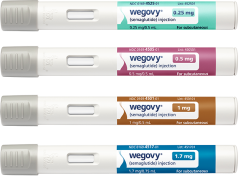The American Heart Association’s Scientific Sessions
The annual meeting of the American Heart Association was held from Nov. 11 to 15 in Anaheim, California, and attracted more than 20,000 participants from around the world, including cardiovascular specialists, surgeons, and nurses as well as other health care professionals. The conference featured presentations focused on the latest advances in cardiovascular medicine and surgery.
In one study, Stephen Juraschek, M.D., Ph.D., of Beth Israel Deaconess Medical Center in Boston, and colleagues found that both sodium reduction and the Dietary Approaches to Stop Hypertension (DASH) diet independently reduced blood pressure regardless of a patient’s baseline blood pressure, with the combined effect of the interventions substantially larger than the individual effects. In addition, the combined effects were much greater in those with a baseline systolic blood pressure of 150 mmHg or greater.
“Patients and physicians should take diet seriously,” said Juraschek. “Eating a heart-healthy diet like the DASH diet and reducing sodium intake can dramatically improve blood pressure even in patients with poorly controlled blood pressure. More education on health dietary patterns like the DASH diet are critical for enabling patients to make healthier food choices.”
In another study, Kyla Lara, M.D., of the Icahn School of Medicine at Mount Sinai Hospital in New York City, and colleagues evaluated whether dietary patterns of black and white adults living in the United States were associated with incident heart failure.
“We used statistical techniques to derive five dietary patterns (Southern, convenience, salads/alcohol, sweets, and plant-based) based on the types of foods participants tended to eat. Each participant received a score for each pattern that reflected how closely their diet resembled that dietary pattern. This approach reflects the real world and how people eat,” said Lara. “Eating a mostly plant-based diet is associated with less risk for heart failure. As clinicians, it is extremely important to take a few minutes each visit to discuss nutrition and diet in our patients to reduce heart failure risk.”
Several authors disclosed financial ties to pharmaceutical and medical device companies.
Mimi S. Biswas, M.D., of the University of California Riverside School of Medicine and Riverside Community Hospital, and colleagues found that the majority of sixth-grade children trained in cardiopulmonary resuscitation (CPR) remembered to call 911 and performed CPR in the correct location with high-quality compressions.
“We confirmed that sixth-graders are capable of learning and performing effective hands-only bystander CPR, and this can and should be taught in schools even as young as the sixth-grade level,” said Biswas. “Not every state has adopted legislation requiring kids to learn CPR by 12th grade, but more lives could be saved if CPR was started earlier in their curriculum.”
Benjamin S. Abella, M.D., of the University of Pennsylvania in Philadelphia, and colleagues found that there are important racial variations in automated external defibrillator (AED) knowledge that may have an impact on cardiac arrest survival in many communities.
“The use of an AED is a crucial step to save lives from cardiac arrest, but for a layperson to use an AED requires that they understand what they are. In our survey of adults living in the United States, we found that AED awareness was low, and it was especially low among Latino survey respondents when compared to Caucasians,” said Abella. “This work suggests an important need for improved AED education among Latinos in the U.S., as well as targeted research to understand the barriers to AED education among minority groups.”
Several authors disclosed financial ties to pharmaceutical and medical device companies.
Kirk U. Knowlton, M.D., of Intermountain Medical Center Heart Institute in Salt Lake City, and colleagues found that patients who fail to follow up with their physician for a low-density lipoprotein (LDL) cholesterol test after a myocardial infarction or stroke are more likely to have a recurrence.
“The risk of dying after three years with no LDL follow-up is 21 percent versus 5.9 percent for patients who have an LDL follow-up,” Knowlton said in a statement.
Jose Benuzillo, of the Intermountain Medical Center Heart Institute in Salt Lake City, and colleagues found that congestive heart failure patients discharged from the hospital with low B-type natriuretic peptide (BNP) experienced 30 percent lower readmission and 54 percent lower mortality rates within 30 days post-discharge.
“Previously there wasn’t enough data in the medical literature that examined the benefit of conducting serial measurements of BNP and the relationship between reduced BNP rates and better outcomes,” Benuzillo said in a statement. “Further research is needed to understand which interventions caused the drop in levels of BNP and which patients responded.”
AHA: Supervised Exercise Ups 6-Minute Walking Distance in PAD
THURSDAY, Nov. 16, 2017 (HealthDay News) — Supervised treadmill exercise, but not granulocyte-macrophage colony-stimulating factor (GM-CSF), improves six-minute walking distance among patients with peripheral artery disease (PAD), according to a study published online Nov. 15 in the Journal of the American Medical Association to coincide with the American Heart Association’s Scientific Sessions, held Nov. 11 to 15 in Anaheim, California.
AHA: Statins Cut Risk of MACE in Patients With ASCVD Event
WEDNESDAY, Nov. 15, 2017 (HealthDay News) — For patients who have experienced an atherosclerotic cardiovascular disease (ASCVD) event, receipt of statins, especially high-intensity statins, is associated with reduced risk of major adverse cardiac events (MACE), according to a study presented at the American Heart Association’s Scientific Sessions, being held Nov. 11 to 15 in Anaheim, California.
AHA/ACA Present New Blood Pressure Guidelines
TUESDAY, Nov. 14, 2017 (HealthDay News) — New guidelines lower the diagnostic threshold for stage 1 hypertension to 130/80, down from the previous level of 140/90, according to a joint statement from the American Heart Association (AHA) and the American College of Cardiology (ACC). The two organizations announced the new guidelines Nov. 13 at the AHA’s Scientific Sessions, being held Nov. 11 to 15 in Anaheim, California.
Abstract/Full Text (subscription or payment may be required)
Guidelines Report
AHA: Acetylcysteine, Sodium Bicarbonate Don’t Cut Renal Risk
MONDAY, Nov. 13, 2017 (HealthDay News) — For patients at high risk for renal complications who are scheduled for angiography, there is no benefit with intravenous sodium bicarbonate over sodium chloride or with oral acetylcysteine over placebo, according to a study published online Nov. 12 in the New England Journal of Medicine to coincide with the American Heart Association’s Scientific Sessions, being held Nov. 11 to 15 in Anaheim, California.
Abstract/Full Text
More Information
AHA: Drinking Coffee May Cut Risk of Heart Failure, Stroke
MONDAY, Nov. 13, 2017 (HealthDay News) — Increased coffee intake is associated with reduced risk of heart failure (HF) and stroke, according to a study presented at the American Heart Association’s Scientific Sessions, being held Nov. 11 to 15 in Anaheim, California.
AHA: Sudden Cardiac Death Risk Up for Young With Diabetes
MONDAY, Nov. 13, 2017 (HealthDay News) — Children and young adults with diabetes mellitus (DM) have a fivefold increased risk of all-cause mortality and a sevenfold increased risk of sudden cardiac death (SCD) compared with age-matched individuals without DM, according to a study presented at the American Heart Association’s Scientific Sessions, being held Nov. 11 to 15 in Anaheim, California.
AHA: Program Cuts Heart Failure Readmits But May Up Mortality
MONDAY, Nov. 13, 2017 (HealthDay News) — Implementation of the Hospital Readmissions Reduction Program (HRRP) is associated with a reduction in readmissions for patients with heart failure but also with an increase in mortality, according to a study published online Nov. 12 in JAMA Cardiology to coincide with the American Heart Association’s Scientific Sessions, being held Nov. 11 to 15 in Anaheim, California.
Abstract/Full Text
More Information
AHA: Cardiac Troponin I IDs Low Risk of MI, Cardiac Death
MONDAY, Nov. 13, 2017 (HealthDay News) — High-sensitivity cardiac troponin I concentration can identify individuals at low risk of myocardial infarction or cardiac death within 30 days among patients with suspected acute coronary syndrome, according to a review published online Nov. 11 in the Journal of the American Medical Association to coincide with the American Heart Association’s Scientific Sessions, being held Nov. 11 to 15 in Anaheim, California.
Abstract/Full Text
More Information
AHA: In Cardiac Sx, Restrictive Red-Cell Transfusion Noninferior
MONDAY, Nov. 13, 2017 (HealthDay News) — A restrictive threshold for red-cell transfusion is noninferior to a liberal threshold for patients undergoing cardiac surgery with moderate to high risk of death, according to a study published online Nov. 12 in the New England Journal of Medicine to coincide with the American Heart Association’s Scientific Sessions, being held Nov. 11 to 15 in Anaheim, California.
Abstract/Full Text
More Information
Copyright © 2017 HealthDay. All rights reserved.







